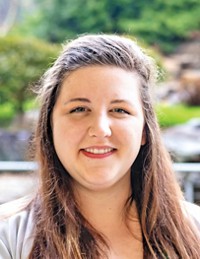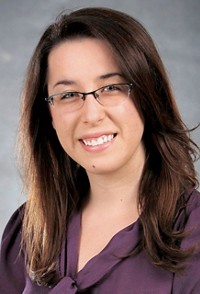Advertisement
Grab your lab coat. Let's get started
Welcome!
Welcome!
Create an account below to get 6 C&EN articles per month, receive newsletters and more - all free.
It seems this is your first time logging in online. Please enter the following information to continue.
As an ACS member you automatically get access to this site. All we need is few more details to create your reading experience.
Not you? Sign in with a different account.
Not you? Sign in with a different account.
ERROR 1
ERROR 1
ERROR 2
ERROR 2
ERROR 2
ERROR 2
ERROR 2
Password and Confirm password must match.
If you have an ACS member number, please enter it here so we can link this account to your membership. (optional)
ERROR 2
ACS values your privacy. By submitting your information, you are gaining access to C&EN and subscribing to our weekly newsletter. We use the information you provide to make your reading experience better, and we will never sell your data to third party members.
Careers
Women Chemists
Despite strides in industry, the biggest challenges for women chemists remain in academia
by Rachel Petkewich
February 19, 2007
| A version of this story appeared in
Volume 85, Issue 8

THE ACS WOMEN CHEMISTS Committee (WCC) has, over the years, sent hundreds of letters to chemistry department chairs, ACS leaders, and other award recipients reminding them to nominate women for all awards. This strategy to get more public recognition for scientific achievements of women chemists seems to be helping. In the past seven years, the number of women nominated for ACS awards has doubled. Women now win roughly 20% of the national awards.
WCC defines its mission as leadership in attracting, developing, and promoting women in the chemical sciences, says Amber Hinkle, WCC chair and the quality lead in polycarbonate manufacturing at Bayer MaterialScience. The committee recently added advocacy within ACS on issues of importance to women in the chemical sciences as another goal.
This year, WCC will kick off its 80th anniversary celebration at the ACS spring national meeting in Chicago.
ACS established the Women's Service Committee in 1927 to encourage women chemists to take an active interest in ACS activities. Helen Free officially renamed it in 1972 during her time as committee chair. Committee members are appointed by the chair of the ACS Board of Directors and ACS president-elect with input from the Committee on Committees. Members represent all degree levels in academia, industry, and government sectors. Most, but not all, committee members are women.
WCC is a national committee that acts as a resource for the grassroots efforts of more than 40 local section WCCs. All women in ACS can be active in WCC through their local sections, Hinkle says.
Women Chemists Committee At A GlanceChairAmber Hinkle,Bayer MaterialScienceCommittee Websitemembership.acs.org/W/WCCMembership15 full members, 13 associates, three consultants, nine committee liaisons, one ACS staff liaisonClassificationJoint Board-Council CommitteeSubcommitteesAdvocacy, Attracting, Communications, Developing, Local Section/Regional OutreachInceptionEstablished in 1927 by the Executive Committee
WCC also networks outside ACS on national and international levels with groups including Women in Science & Engineering and the WCC-equivalent in Germany.
National WCC members participate on five mission-related subcommittees. The role of the Attracting Subcommittee is to get younger women into the chemical sciences, Hinkle explains. This group administers travel grants to women students so they can attend professional conferences to present their research.
The Developing Subcommittee's goals are to help entry-level women chemists find employment and to support early- and mid-career professionals seeking advancement, Hinkle says. A key task of this subcommittee is to publish inspirational interviews with role models in chemistry, such as the 2005 book "Successful Women in Chemistry: Corporate America's Contribution to Science." The subcommittee also administers programs from an ACS pilot program called PROGRESS (Partnerships, Reflection, Openness, Grants, Resources, Education, Site visits & Successes; chemistry.org/progress). PROGRESS was established to test, develop, and evaluate programs that promote the full participation and advancement of women chemists and chemical engineers (C&EN, Nov. 24, 2003, page 28).
The Advocacy Subcommittee encourages and tracks nominations of women for ACS national awards. Members of this subcommittee also concentrate their efforts on getting more women into tenured academic positions. WCC doesn't provide personal advice for individuals. Instead, "We will refer people to good resources within ACS," Hinkle says. So, for example, pregnant women with questions about which chemicals they can safely work with will be directed to the Committee on Chemical Safety.
To keep members updated, WCC's Communications Subcommittee uses the WCC website and a twice-yearly electronic newsletter that is e-mailed to more than 30,000 people. WCC's chair for programming for some regional and all national meetings is also on this subcommittee.
The Local Section/Regional Outreach Subcommittee addresses local section WCCs, such as through half-day career development symposia at regional meetings, called Roadshows.
WCC is proud of its numerous accomplishments, and Hinkle credits both current and past WCC members for creating and maintaining a strong committee that can lead the way in making lasting improvements for women in chemistry. But WCC has more work to do. "We really feel that industry has made great progress in leveling the playing field for women scientists," Hinkle says. "If WCC could do only one thing, it would be to increase the number of tenured women faculty at the top research institutions."
The opening 80th anniversary event will be at the open meeting and panel discussion at the Hyatt Regency Chicago on March 24 at 5 PM.




Join the conversation
Contact the reporter
Submit a Letter to the Editor for publication
Engage with us on Twitter